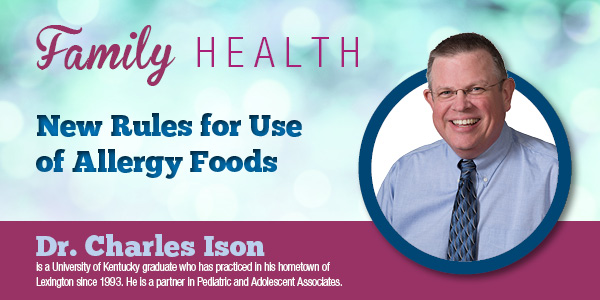New Rules for Use of Allergy Foods
For many years the official guidelines from the American Academy of Pediatrics (and other organizations) have recommended delaying the feeding of solids to infants to help prevent asthma and allergies.
The theory went that the younger infants were introduced to certain foods, the more likely they were to trigger allergic (atopic) disease.
Certain foods, such as peanut products, were not to be introduced to infants at all. Recently the guidelines have changed.
We have known for at least the last 12 years that delaying solid foods appears to have no bearing on an infant’s chances of developing asthma and allergies.
As a matter of fact, a sensitization (allergy) to a food is more likely to develop if its introduction to an infant is delayed.
A study in the New England Journal of Medicine was published in 2015 to tackle the mystery of why Jewish children in London (England) had ten times the rate of peanut allergy of ethnically identical Jewish children in Israel.
It turns out that Israeli Jewish children start eating peanut products (such as Bamba puffs) around seven months of age.
Jewish children in London usually start peanut products much later.
Indeed, early introduction of peanut products decreased the likelihood of peanut allergy.
It is now recommended by the AAP to feed infants appropriate peanut products and other once-forbidden foods such as eggs, shellfish, etc., once they have practiced eating some other solids.
For infants who already have eczema, a family history of peanut allergy, or a significant allergic reaction to another food, there is a protocol to follow that a health-care provider can help with before giving peanut products.
The recommendations for feeding solids to infants still call for waiting until 4-6 months of age before starting them.
A powdered infant cereal is still recommended to try first, since it can be mixed with breast milk or formula to the preferred thickness for spoon-feeding an infant.
Appropriately prepared fruits, vegetables and then meats are to be introduced for a few days in a row so that any signs of food allergy (vomiting, diarrhea, or rashes) can be assessed in the infant.
It is still recommended to withhold honey from any infant under 12 months of age. This has nothing to do with allergies – it is because honey can cause infant botulism, which can paralyze a baby.

